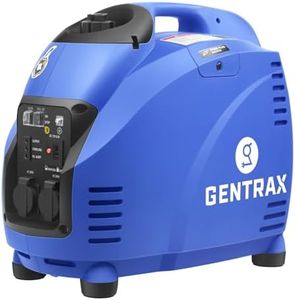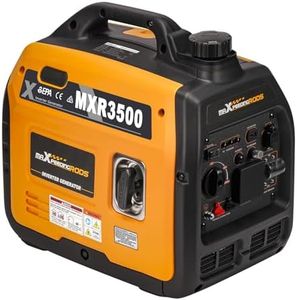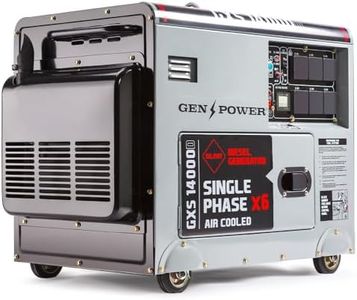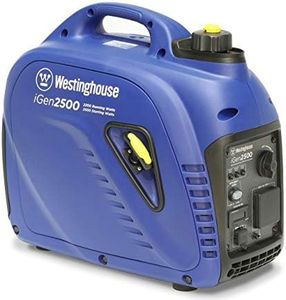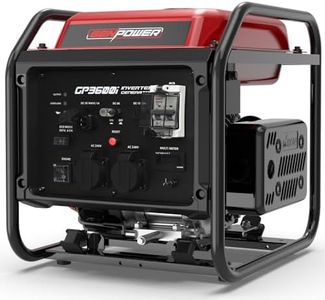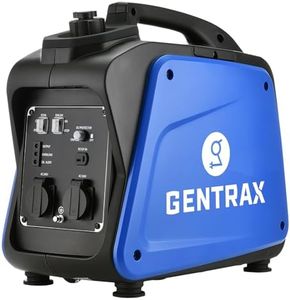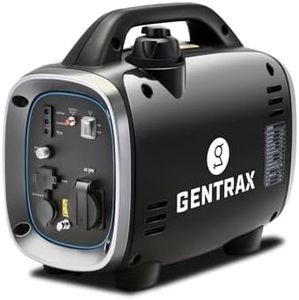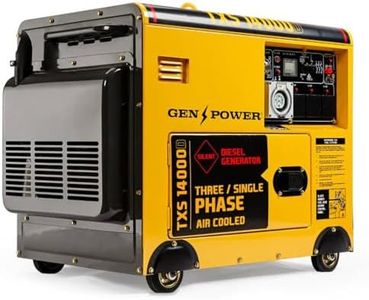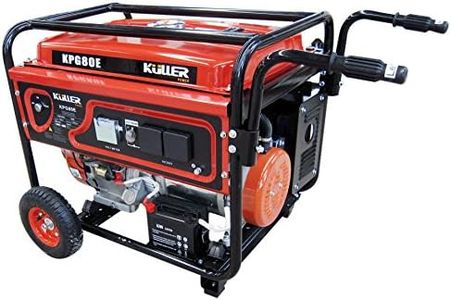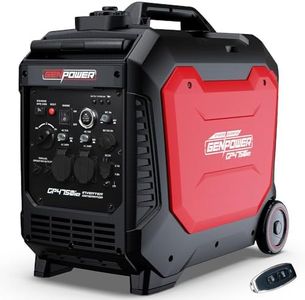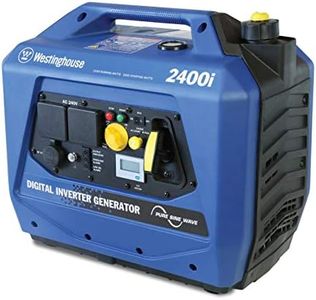We Use CookiesWe use cookies to enhance the security, performance,
functionality and for analytical and promotional activities. By continuing to browse this site you
are agreeing to our privacy policy
10 Best generators
From leading brands and best sellers available on the web.By clicking on a link to a third party's website, log data is shared with that third party.
Buying Guide for the Best generators
Choosing a generator can make a real difference during power outages, outdoor events, or when working in places without reliable electricity. The most important thing is to understand what you want to power and how long you need the generator to run. Instead of picking the biggest or most popular generator, take your time to think about your core needs, where you will use it, and how often you expect to rely on it. This will guide you toward a generator that is reliable, safe, and suitable for your lifestyle or work.Power Output (Wattage)Power output, measured in watts, shows how much electricity the generator can provide at once. This is important because using a generator with too little wattage might overload it or leave you unable to power all your devices. Small generators (under 2,000 watts) are usually enough for camping, charging a few devices, or running small tools. Medium generators (2,000-5,000 watts) can power basic household appliances, like refrigerators, lights, or a sump pump. Large generators (over 5,000 watts) are useful if you want to keep your home running during an outage, covering things like heating, cooling, and multiple appliances. Start by making a list of critical items you need to power, check their watt ratings, and add them up to find your required output. Always choose a generator that comfortably covers your maximum usage.
Fuel TypeGenerators can run on different fuels such as gasoline, diesel, propane, or natural gas. This spec matters because it affects how easy and safe it is to refuel your generator, along with how much it will cost to run. Gasoline is common and easy to find, but it can be harder to store for long periods. Diesel tends to last longer and is more fuel-efficient, but these generators can be noisier and heavier. Propane is clean and stores well but offers slightly less power, while natural gas requires a hook-up at your property. Think about what's available in your area and how you'll refill, then match the generator type to your access to fuel and comfort with storage.
Run TimeRun time tells you how many hours the generator can operate continuously before it needs refueling. If you want overnight power or to keep appliances running for extended periods, look for a longer run time per tank. Generators can usually run from 6 to 18 hours at half-load, but this depends on their fuel tank size and efficiency. Shorter run times are fine for day trips or emergencies, while extended periods without access to fuel require a longer-lasting option. Choose based on how often you'll be able (and want) to refuel during use.
PortabilityPortability includes the generator’s weight, size, and whether it has handles or wheels, all of which are important if you need to move the generator often. Lightweight and compact models are easiest for travel, camping, or moving around a yard. Larger standby generators are meant to be installed in one place and aren’t easy to move. Consider how many people will lift or move the generator and whether you expect to transport it frequently.
Noise LevelNoise level is measured in decibels (dB) and tells you how loud the generator will be while running. This matters if you plan to use it near homes, while camping, or in areas with noise restrictions. Some generators are designed to be much quieter (often called ‘inverter’ models), typically running between 50-65 dB. Standard models can be louder, reaching 70 dB or more (like a vacuum cleaner or lawnmower). Lower noise is better for sensitive environments, while a noisy one may be fine for a work site.
Outlets and ConnectivityThe types and number of power outlets show what you can connect to your generator. Some have only basic household plugs, while others add RV outlets, USB ports, or heavy-duty sockets for things like refrigerators or power tools. Check which plugs you need for your appliances and make sure your chosen generator offers enough of the right kind. This helps avoid needing lots of adapters or power strips.
Safety FeaturesKey safety features include things like automatic shut-off when oil is low, overload protection, and carbon monoxide sensors. These help keep your generator running safely without damaging your equipment or risking accidents. If you’re not experienced with generators, models with more built-in safety are a smart pick, as they help prevent mistakes and provide peace of mind during emergencies.

